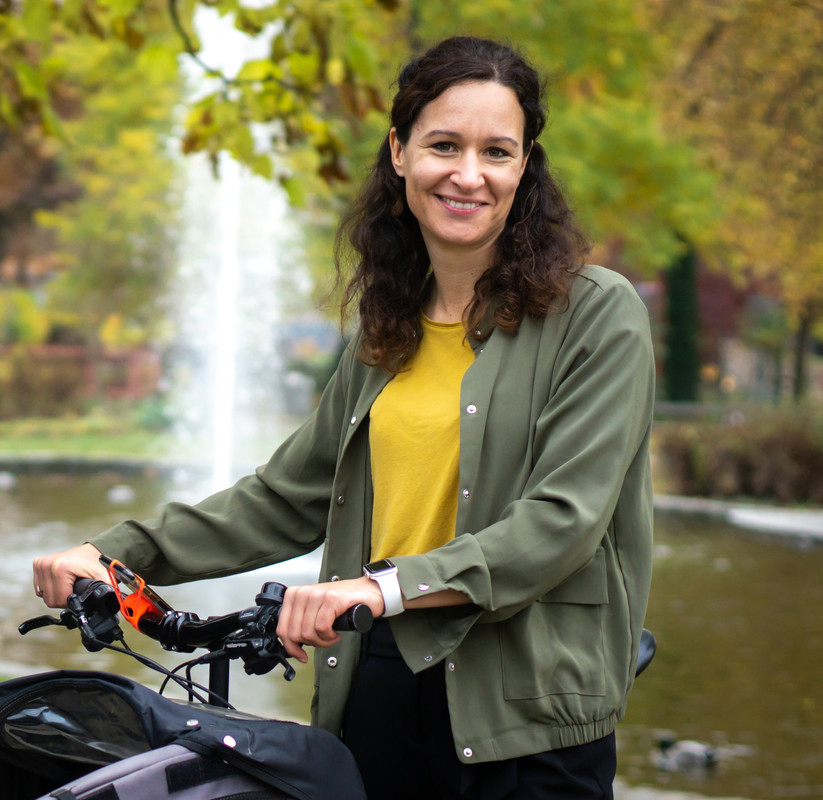We caught up with CIE Member Elisabeth Felberbauer, Managing Director at Bike Citizens and active member of CIE's Market Impact & Intelligence Expert Group, at the Velo-city 2022 Conference in Ljubljana to hear her thoughts on the future, challenges and inspirations in the cycling industry.
1. Can you give us a brief description of Bike Citizens?
Bike Citizens is the digital home for cyclists – we make it easy for anyone to start cycling and find cycle-friendly routes from A to anywhere. Our mission is to get as many people as possible cycling, and we do this by offering digital tools, such as our cycling app where people find all different cycling related content, events or challenges.
On the other hand, we also work together with cities, regions, and municipalities in the form of digital campaigns to shape the mobility behavior towards cycling citizens and help them promote cycling on a local level. For example, we’ve had several reward challenges where users earn points that can then be redeemed at local stores. Our platform is rich in local content, i.e., conflict hotspots, providing local value for cyclists. The data we gain from our campaigns is also very valuable for cities in terms of better infrastructure planning, i.e., to better predict what kind of cycling infrastructure is needed, but to also become aware and address the safety concerns of everyday cyclists. We’re able to translate subjective feedback into data and comprehensive cycling behavior, including GPS and sociodemographic data, to create an all-inclusive package for a representative view of a city.
We’ve learned that it’s important to not only work over this data with cities, but to also feed it back to our users so that they know what’s happening with their data. Essentially, our model is cyclical in that we promote cycling to get more people on bikes, learn from users’ cycling behavior to improve cycling conditions, to which we use to further promote cycling, learn from our users, and so on.
2. What cycling trends are you most excited to see by the year 2030? By 2050?
I’m excited to finally see cycling be equal in the mobility mix – there are a number of “cycling master plans,” many of which should be actualized in 2030. I think we’ll see a lot of development within cycling logistics, but also within family mobility in that the bicycle will become a very popular means of transport as it’s becoming increasingly more accepted and promotes a healthy lifestyle. The bicycle itself is already quite innovative and with the growth of e-bikes, we see cycling extend its reach in terms of age and distance, leaving no more excuses to not cycle! While e-bikes yield longer distances and a faster means of urban transport, the market is still pushing for new and innovative solutions, and we need to make sure that the advantages of cycling are still working with these new developments.
3. What do you see as a major challenge in the cycling industry, and how can CIE play a role in overcoming that challenge?
CIE brings together the industry’s companies and services. It is an important platform for building up a good network, instead of starting every service from scratch. For example, the CIE Bike Sharing Expert Group worked on a data standard (GBFS) that enables us to integrate any of these service into the Bike Citizens app – this is a win-win for everybody: The user benefits from seamless services in is favorite platform and the platforms benefit from happier users.
4. What or who in the cycling industry inspires you?
I’m inspired by those out there making political decisions and standing their ground. Filip Watteeuw from Gent or Anne Hildago from Paris, for instance, they’re standing for their mobility plans, regardless of headwind. Today both cities are role models for many others, or Barcelona as well. It’s the brave people that will change the world! I think that’s what’s really needed – there needs to be a person consistently representing progressive cycling plans and visions, being ready to take any ups and downs. Also, tourism helps to give cycling a positive drive. Arising Bike Parks, Bike Travels for old and young put cycling in the spotlight. Combining the increasing interest in cycling with leasing models and the push by companies towards cycle commutes accelerates the developments in the whole branch for the good.
5. Describe in 5 words how cycling is saving the world.
We challenged Elisabeth to tell us in just five words how she sees cycling can save the world:
